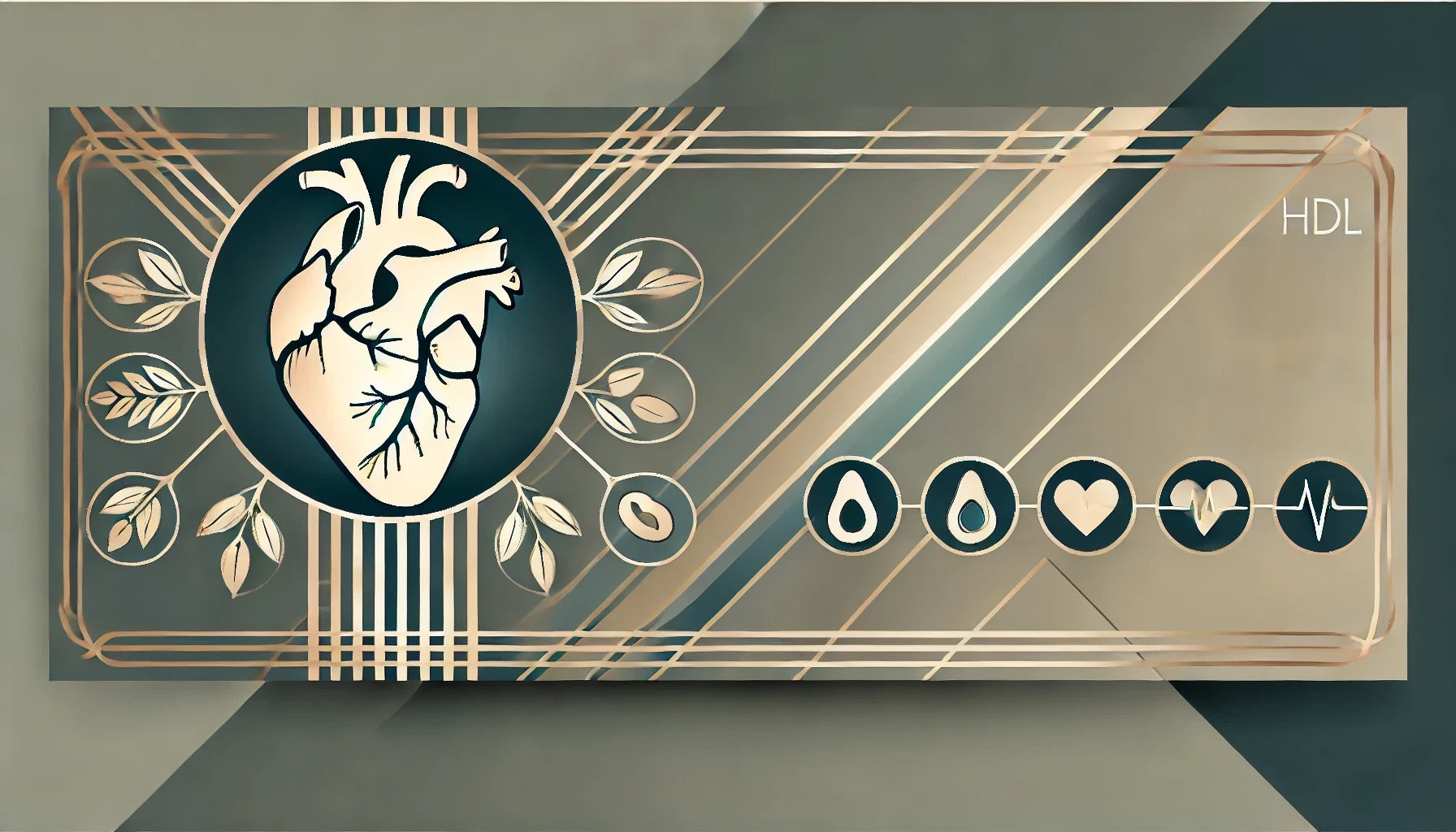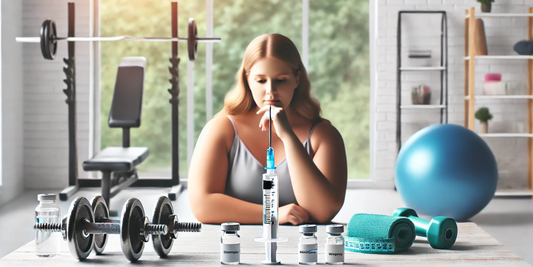Understanding HDL Cholesterol: Why It's Important and How to Boost It
When it comes to heart health, cholesterol is often a word that raises alarms. But did you know that not all cholesterol is bad? In fact, one type of cholesterol, known as HDL, is crucial for keeping your heart in top shape.
So, what is HDL cholesterol, why is it important, and how you can naturally boost it.
What is HDL Cholesterol?
HDL stands for high-density lipoprotein, often called "good" cholesterol. Unlike its counterpart, LDL (low-density lipoprotein), which can lead to plaque buildup in your arteries and increase your risk of heart disease, HDL works to remove bad cholesterol from your bloodstream. Think of HDL as a cleanup crew that helps transport excess cholesterol from your arteries to your liver, where it can be processed and eliminated from your body.
Why is HDL Cholesterol Important?
1. Reduces Heart Disease Risk: Higher HDL cholesterol levels are associated with a lower risk of heart disease. By helping to clear out excess LDL cholesterol, HDL reduces the chances of plaque buildup in your arteries, which can lead to heart attacks and strokes.
2. Anti-inflammatory Properties: HDL has anti-inflammatory effects that protect the arterial walls from damage, further reducing the risk of cardiovascular disease.
3. Antioxidant Effects: HDL also has antioxidant properties, which helps prevent LDL cholesterol oxidation. Oxidised LDL is more likely to cause inflammation and lead to atherosclerosis (hardening of the arteries).
4. Promotes Cholesterol Balance: HDL helps maintain a healthy cholesterol balance in your blood. It ensures that excess cholesterol is efficiently removed, reducing the overall burden on your cardiovascular system.
How Can You Increase Your HDL Cholesterol?
While genetics play a role in your HDL levels, there are several lifestyle changes you can make to boost your HDL and protect your heart:
1. Eat Healthy Fats: Incorporate more monounsaturated fats, found in olive oil, avocados, and nuts, into your diet. Omega-3 fatty acids, found in fatty fish like salmon and mackerel, are also great for raising HDL levels.
2. Exercise Regularly: Physical activity, especially aerobic exercises like walking, running, or cycling, can increase HDL levels. Aim for at least 150 minutes of moderate exercise each week.
3. Quit Smoking: If you smoke, quitting can lead to a significant increase in HDL cholesterol, along with numerous other health benefits.
4. Limit Refined Carbs and Sugars: Reducing your intake of refined carbohydrates and sugary foods can help improve your HDL levels and overall cholesterol profile.
5. Moderate Alcohol Intake: Drinking alcohol in moderation, particularly red wine, may raise HDL levels. However, it’s important to keep consumption within recommended limits.
6. Consider Supplements: Certain supplements like niacin, omega-3 fatty acids, and probiotics have been shown to help increase HDL cholesterol.
Conclusion
HDL cholesterol is vital in maintaining heart health by removing excess bad cholesterol and protecting your arteries from damage. By making smart dietary choices, staying active, and adopting heart-healthy habits, you can naturally boost your HDL levels and reduce your risk of cardiovascular disease.
It is important to examine the fractions that make up your total cholesterol levels when assessing your lipids. A high HDL with a low LDL is a healthy pattern, whilst a low HDL and a high LDL cannot yet both have a similar total cholesterol score.
Reference
1. Mozaffarian D, Hao T, Rimm EB, Willett WC, Hu FB. Changes in diet and lifestyle and long-term weight gain in women and men. N Engl J Med. 2011;364(25):2392-2404. doi:10.1056/NEJMoa1014296
2. Manninen V, Huttunen JK, Heinonen OP, Tenkanen L, Frick MH. Relation between baseline lipid and lipoprotein values and the incidence of coronary heart disease in the Helsinki Heart Study. Am J Cardiol. 1989;63(16):42H-47H. doi:10.1016/0002-9149(89)90115-x
3. Barter P, Gotto AM, LaRosa JC, et al. HDL cholesterol, very low levels of LDL cholesterol, and cardiovascular events. N Engl J Med. 2007;357(13):1301-1310. doi:10.1056/NEJMoa064278
4. Grundy SM, Cleeman JI, Merz CN, et al. Implications of recent clinical trials for the National Cholesterol Education Program Adult Treatment Panel III guidelines [published correction appears in Circulation. 2004 Aug 10;110(6):763]. Circulation. 2004;110(2):227-239. doi:10.1161/01.CIR.0000133317.49796.0






